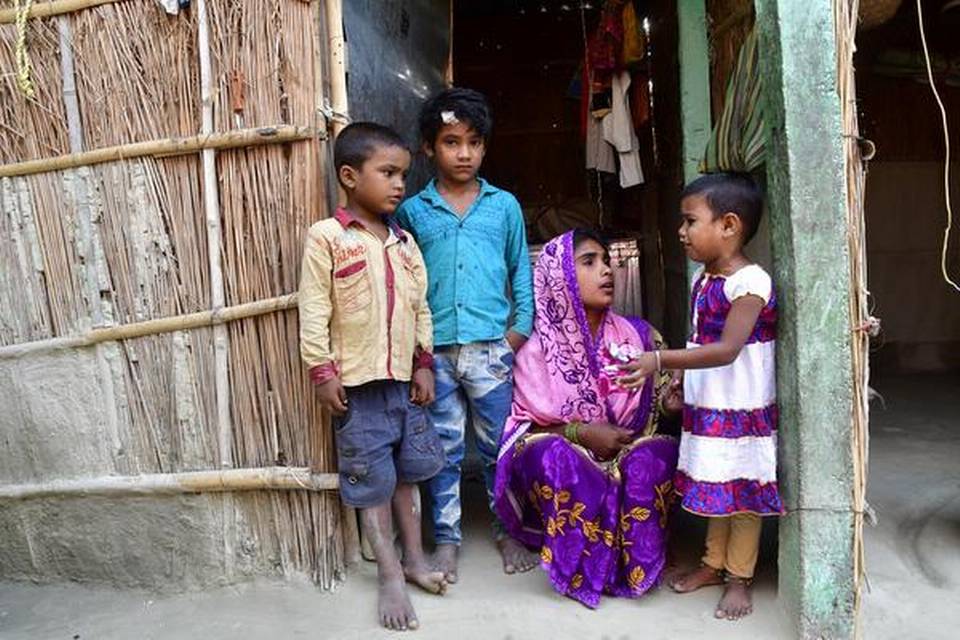Minorities in north India bear the brunt of post-election hate crimes

It is the last Friday of Ramzan and lying on a blue rexine bed that is standard in private nursing homes, with an intravenous tube (IV) and a catheter attached to him, Mohammad Qasim, 29, has the anguished look of a man who is weary of carrying the burden of his name. As his cousins rush out of the nursing home to offer Alvida Juma (jumu’atul vida) namaz, tears course down Qasim’s cheeks. He says, “I cannot even get up to offer my prayers, and this is more painful than the bullet lodged inside me.”
Three days after the spectacular verdict of the 2019 general election that gave Prime Minister Narendra Modi a second term, Mohammad Qasim was shot at for being a Muslim in Kumbhi village. It falls under the jurisdiction of Cheria-Bariyarpur police station in Begusarai district, Bihar.
Looking back, it would appear that the atmosphere had already been vitiated by politicians in the run-up to the general election. Hindutva poster boy and Union Minister Giriraj Singh won the Begusarai Lok Sabha seat by defeating CPI candidate Kanhaiya Kumar, a former president of the Jawaharlal Nehru University student union; Rashtriya Janata Dal candidate Tanvir Hussain came a distant third. Campaigning for the polls, Singh repeatedly hit the headlines with controversial statements. “My ancestors died and were cremated… but you need a yard of land even after you die. If you say you cannot chant Vande Mataram, this nation will never forget you,” he had said in the course of an election rally. He had also demanded the Election Commission of India impose a ban on the use of green flags. This was not the first time Singh had courted controversy in his attempts to create a wedge between religious communities.
The past five years of the Narendra Modi government have seen a spate of lynchings across north India. A potent cocktail of religion, the issue of gau rakshak and intolerance towards other faiths appears to be fuelling the violence. Almost every act is caught on camera and quickly disseminated on social media which amplifies it. Politicians from the ruling dispensation have kept their silence. Just a few days ago one such gruesome act was captured on camera where, in Uttar Pradesh, a group of men are seen beating daily wage labourers for eating meat.
Qasim is a stout man who walks with a pronounced limp. Along with other members of his community, he weaves quilts for a living during the winter and supplements his income by doing odd jobs in the summer. He says, “My younger brother suggested that I sell detergent door-to-door and I agreed. I had to support my family, after all.” Borrowing money from friends and relatives, Qasim bought a moped for ₹25,000 and started selling detergent. An additional ₹800 was spent on getting a microphone fitted to the moped. The microphone blared promotional jingles exhorting people to purchase Qasim’s 3 kg detergent powder for just ₹100. On a normal day, Qasim’s earnings touched ₹300.
May 26 was just another usual day with much of the celebrations that followed the verdict of the general election having quietened down. Qasim had left home early to escape the heat and hoping to get some business done, persuading housewives to buy his detergent before they shut their doors for noon. May is a brutal summer month with most people preferring to stay indoors.
Qasim reached Kumbhi village, 10 km from his home. He recounts, “I had just parked my moped outside a paan shop, when suddenly a man [later identified as Rajiv Yadav] ordered me to switch off the mike. I turned it off immediately. He asked my name and upon hearing it, told me to go to Pakistan. ‘You should be in Pakistan or...,’ and he looked up at the sky. In a split second, he whipped out his katta (country revolver) and fired at me.”
